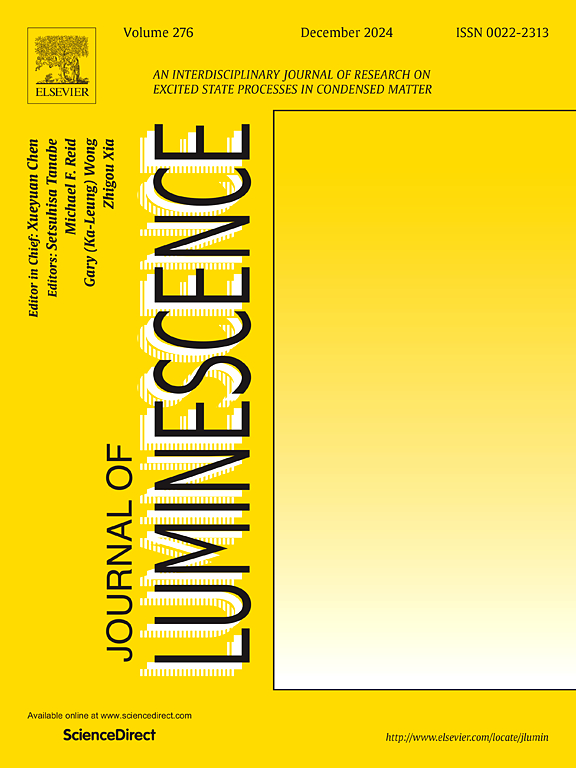Mechanism of particulate deposition induced by stray light and laser-induced damage of reflectors
IF 3.3
3区 物理与天体物理
Q2 OPTICS
引用次数: 0
Abstract
The laser's optical path system comprises numerous optical components. Reflection and scattering from these components result in constant generation of stray light. Stray light is uncontrollable, and every component in the device faces the risk of irradiation. This irradiation can lead to damage and particulate sputtering on metal surfaces within the device, thereby impacting the performance of downstream components. In this study, we researched the contamination process of high-reflectivity multilayer HfO2/SiO2 film components, simulated the process of stray light irradiation on stainless steel components, inducing damage and particulate sputtering through experimentation, and then conducted characterization and damage performance tests on the contaminated samples. When stainless steel is irradiated with low energy density (≥10 mJ/cm2) stray light, it produces non-metallic particulate contaminants that affect the components' damage performance. The higher the laser energy density, the more complex the process of generating particulate contaminants and the more severe the impact on damage performance. Through multi-physics simulation and experimental studies on the damage mechanisms of particulate contaminants, the results indicate that characteristics such as composition and dimension of particulate contaminants play different roles in modulating electric field and temperature during laser irradiation processes. This paper elucidates the sputtering behavior of particulate contaminants due to stray light scattering and reveals the characteristics of irradiation response and damage mechanisms of particulates, which is crucial for studying and understanding the impact of stray light on device performance under load. Studying the impact of stray light on protecting optical components in high-power laser device from contaminants is crucial.
杂散光诱发微粒沉积的机理以及激光对反射器的损伤
激光器的光路系统由许多光学元件组成。这些组件的反射和散射会不断产生杂散光。杂散光是无法控制的,设备中的每个组件都面临着被辐照的风险。这种辐照会导致设备内金属表面的损坏和微粒溅射,从而影响下游组件的性能。在这项研究中,我们研究了高反射率多层 HfO2/SiO2 薄膜元件的污染过程,通过实验模拟了杂散光辐照不锈钢元件的过程,诱发损伤和微粒溅射,然后对污染样品进行了表征和损伤性能测试。当不锈钢受到低能量密度(≥10 mJ/cm2)的杂散光照射时,会产生非金属颗粒污染物,从而影响部件的损伤性能。激光能量密度越高,产生颗粒污染物的过程就越复杂,对损坏性能的影响也就越严重。通过对微粒污染物的损伤机理进行多物理场模拟和实验研究,结果表明微粒污染物的成分和尺寸等特征在激光辐照过程中对电场和温度的调节作用各不相同。本文阐明了杂散光散射导致的微粒污染物溅射行为,揭示了微粒的辐照响应特征和损伤机制,这对于研究和理解杂散光对负载下器件性能的影响至关重要。研究杂散光对保护高功率激光设备中的光学元件免受污染的影响至关重要。
本文章由计算机程序翻译,如有差异,请以英文原文为准。
求助全文
约1分钟内获得全文
求助全文
来源期刊

Journal of Luminescence
物理-光学
CiteScore
6.70
自引率
13.90%
发文量
850
审稿时长
3.8 months
期刊介绍:
The purpose of the Journal of Luminescence is to provide a means of communication between scientists in different disciplines who share a common interest in the electronic excited states of molecular, ionic and covalent systems, whether crystalline, amorphous, or liquid.
We invite original papers and reviews on such subjects as: exciton and polariton dynamics, dynamics of localized excited states, energy and charge transport in ordered and disordered systems, radiative and non-radiative recombination, relaxation processes, vibronic interactions in electronic excited states, photochemistry in condensed systems, excited state resonance, double resonance, spin dynamics, selective excitation spectroscopy, hole burning, coherent processes in excited states, (e.g. coherent optical transients, photon echoes, transient gratings), multiphoton processes, optical bistability, photochromism, and new techniques for the study of excited states. This list is not intended to be exhaustive. Papers in the traditional areas of optical spectroscopy (absorption, MCD, luminescence, Raman scattering) are welcome. Papers on applications (phosphors, scintillators, electro- and cathodo-luminescence, radiography, bioimaging, solar energy, energy conversion, etc.) are also welcome if they present results of scientific, rather than only technological interest. However, papers containing purely theoretical results, not related to phenomena in the excited states, as well as papers using luminescence spectroscopy to perform routine analytical chemistry or biochemistry procedures, are outside the scope of the journal. Some exceptions will be possible at the discretion of the editors.
 求助内容:
求助内容: 应助结果提醒方式:
应助结果提醒方式:


